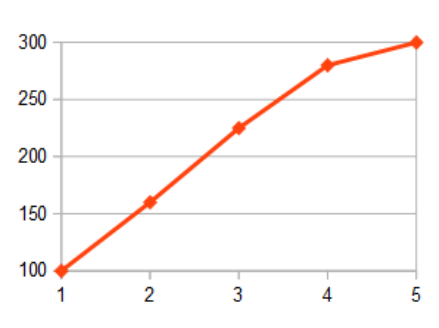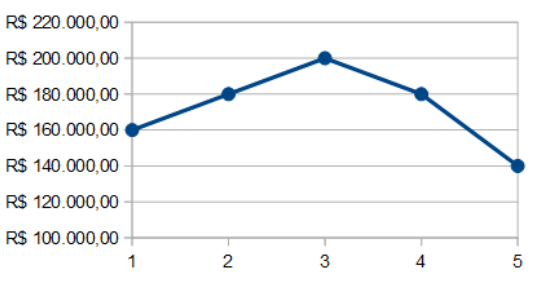Questões de Concurso
Comentadas para avança sp
Foram encontradas 6.815 questões
Resolva questões gratuitamente!
Junte-se a mais de 4 milhões de concurseiros!

O primeiro beijo
Os dois mais murmuravam que conversavam: havia pouco iniciara-se o namoro e ambos andavam tontos, era o amor. Amor com o que vem junto: ciúme. – Está bem, acredito que sou a sua primeira namorada, fico feliz com isso. Mas me diga a verdade, só a verdade: você nunca beijou uma mulher antes de me beijar? Ele foi simples:
– Sim, já beijei antes uma mulher.
– Quem era ela? perguntou com dor.
Ele tentou contar toscamente, não sabia como dizer. O ônibus da excursão subia lentamente a serra. Ele, um dos garotos no meio da garotada em algazarra, deixava a brisa fresca bater-lhe no rosto e entrar- lhe pelos cabelos com dedos longos, finos e sem peso como os de uma mãe. Ficar às vezes quieto, sem quase pensar, e apenas sentir – era tão bom. A concentração no sentir era difícil no meio da balbúrdia dos companheiros. E mesmo a sede começara: brincar com a turma, falar bem alto, mais alto que o barulho do motor, rir, gritar, pensar, sentir, puxa vida! como deixava a garganta seca. E nem sombra de água. O jeito era juntar saliva, e foi o que fez. Depois de reunida na boca ardente, engolia-a lentamente, outra vez e mais outra. Era morna, porém, a saliva, e não tirava a sede. Uma sede enorme maior do que ele próprio, que lhe tomava agora o corpo todo. A brisa fina, antes tão boa, agora ao sol do meio dia tornara-se quente e árida e ao penetrar pelo nariz secava ainda mais a pouca saliva que pacientemente juntava. E se fechasse as narinas e respirasse um pouco menos daquele vento de deserto? Tentou por instantes mas logo sufocava. O jeito era mesmo esperar, esperar. Talvez minutos apenas, enquanto sua sede era de anos. Não sabia como e por que mas agora se sentia mais perto da água, pressentia-a mais próxima, e seus olhos saltavam para fora da janela procurando a estrada, penetrando entre os arbustos, espreitando, farejando. O instinto animal dentro dele não errara: na curva inesperada da estrada, entre arbustos estava… o chafariz de onde brotava num filete a água sonhada. O ônibus parou, todos estavam com sede mas ele conseguiu ser o primeiro a chegar ao chafariz de pedra, antes de todos. De olhos fechados entreabriu os lábios e colou-os ferozmente ao orifício de onde jorrava a água. O primeiro gole fresco desceu, escorrendo pelo peito até a barriga. Era a vida voltando, e com esta encharcou todo o seu interior arenoso até se saciar. Agora podia abrir os olhos. Abriu-os e viu bem junto de sua cara dois olhos de estátua fitando-o e viu que era a estátua de uma mulher e que era da boca da mulher que saía a água. Lembrou-se de que realmente ao primeiro gole sentira nos lábios um contato gélido, mais frio do que a água. E soube então que havia colado sua boca na boca da estátua da mulher de pedra. A vida havia jorrado dessa boca, de uma boca para outra. Intuitivamente, confuso na sua inocência, sentia intrigado: mas não é de uma mulher que sai o líquido vivificador, o líquido germinador da vida… Olhou a estátua nua. Ele a havia beijado. Sofreu um tremor que não se via por fora e que se iniciou bem dentro dele e tomou-lhe o corpo todo estourando pelo rosto em brasa viva. Deu um passo para trás ou para frente, nem sabia mais o que fazia. Perturbado, atônito, percebeu que uma parte de seu corpo, sempre antes relaxada, estava agora com uma tensão agressiva, e isso nunca lhe tinha acontecido. Estava de pé, docemente agressivo, sozinho no meio dos outros, de coração batendo fundo, espaçado, sentindo o mundo se transformar. A vida era inteiramente nova, era outra, descoberta com sobressalto. Perplexo, num equilíbrio frágil. Até que, vinda da profundeza de seu ser, jorrou de uma fonte oculta nele a verdade. Que logo o encheu de susto e logo também de um orgulho antes jamais sentido: ele… Ele se tornara homem.
Clarice Lispector
Considere as seguintes sentenças:
I. Eles foram ao mercado.
II. Ela rezou o dia inteiro.
III. Nós viajaremos para Nova Iorque.
Em todas as sentenças dadas, as desinências dos verbos indicam:
O primeiro beijo
Os dois mais murmuravam que conversavam: havia pouco iniciara-se o namoro e ambos andavam tontos, era o amor. Amor com o que vem junto: ciúme. – Está bem, acredito que sou a sua primeira namorada, fico feliz com isso. Mas me diga a verdade, só a verdade: você nunca beijou uma mulher antes de me beijar? Ele foi simples:
– Sim, já beijei antes uma mulher.
– Quem era ela? perguntou com dor.
Ele tentou contar toscamente, não sabia como dizer. O ônibus da excursão subia lentamente a serra. Ele, um dos garotos no meio da garotada em algazarra, deixava a brisa fresca bater-lhe no rosto e entrar- lhe pelos cabelos com dedos longos, finos e sem peso como os de uma mãe. Ficar às vezes quieto, sem quase pensar, e apenas sentir – era tão bom. A concentração no sentir era difícil no meio da balbúrdia dos companheiros. E mesmo a sede começara: brincar com a turma, falar bem alto, mais alto que o barulho do motor, rir, gritar, pensar, sentir, puxa vida! como deixava a garganta seca. E nem sombra de água. O jeito era juntar saliva, e foi o que fez. Depois de reunida na boca ardente, engolia-a lentamente, outra vez e mais outra. Era morna, porém, a saliva, e não tirava a sede. Uma sede enorme maior do que ele próprio, que lhe tomava agora o corpo todo. A brisa fina, antes tão boa, agora ao sol do meio dia tornara-se quente e árida e ao penetrar pelo nariz secava ainda mais a pouca saliva que pacientemente juntava. E se fechasse as narinas e respirasse um pouco menos daquele vento de deserto? Tentou por instantes mas logo sufocava. O jeito era mesmo esperar, esperar. Talvez minutos apenas, enquanto sua sede era de anos. Não sabia como e por que mas agora se sentia mais perto da água, pressentia-a mais próxima, e seus olhos saltavam para fora da janela procurando a estrada, penetrando entre os arbustos, espreitando, farejando. O instinto animal dentro dele não errara: na curva inesperada da estrada, entre arbustos estava… o chafariz de onde brotava num filete a água sonhada. O ônibus parou, todos estavam com sede mas ele conseguiu ser o primeiro a chegar ao chafariz de pedra, antes de todos. De olhos fechados entreabriu os lábios e colou-os ferozmente ao orifício de onde jorrava a água. O primeiro gole fresco desceu, escorrendo pelo peito até a barriga. Era a vida voltando, e com esta encharcou todo o seu interior arenoso até se saciar. Agora podia abrir os olhos. Abriu-os e viu bem junto de sua cara dois olhos de estátua fitando-o e viu que era a estátua de uma mulher e que era da boca da mulher que saía a água. Lembrou-se de que realmente ao primeiro gole sentira nos lábios um contato gélido, mais frio do que a água. E soube então que havia colado sua boca na boca da estátua da mulher de pedra. A vida havia jorrado dessa boca, de uma boca para outra. Intuitivamente, confuso na sua inocência, sentia intrigado: mas não é de uma mulher que sai o líquido vivificador, o líquido germinador da vida… Olhou a estátua nua. Ele a havia beijado. Sofreu um tremor que não se via por fora e que se iniciou bem dentro dele e tomou-lhe o corpo todo estourando pelo rosto em brasa viva. Deu um passo para trás ou para frente, nem sabia mais o que fazia. Perturbado, atônito, percebeu que uma parte de seu corpo, sempre antes relaxada, estava agora com uma tensão agressiva, e isso nunca lhe tinha acontecido. Estava de pé, docemente agressivo, sozinho no meio dos outros, de coração batendo fundo, espaçado, sentindo o mundo se transformar. A vida era inteiramente nova, era outra, descoberta com sobressalto. Perplexo, num equilíbrio frágil. Até que, vinda da profundeza de seu ser, jorrou de uma fonte oculta nele a verdade. Que logo o encheu de susto e logo também de um orgulho antes jamais sentido: ele… Ele se tornara homem.
Clarice Lispector
Assinale a alternativa que apresenta todas as palavras acentuadas corretamente.
.
O primeiro beijo
Os dois mais murmuravam que conversavam: havia pouco iniciara-se o namoro e ambos andavam tontos, era o amor. Amor com o que vem junto: ciúme. – Está bem, acredito que sou a sua primeira namorada, fico feliz com isso. Mas me diga a verdade, só a verdade: você nunca beijou uma mulher antes de me beijar? Ele foi simples:
– Sim, já beijei antes uma mulher.
– Quem era ela? perguntou com dor.
Ele tentou contar toscamente, não sabia como dizer. O ônibus da excursão subia lentamente a serra. Ele, um dos garotos no meio da garotada em algazarra, deixava a brisa fresca bater-lhe no rosto e entrar- lhe pelos cabelos com dedos longos, finos e sem peso como os de uma mãe. Ficar às vezes quieto, sem quase pensar, e apenas sentir – era tão bom. A concentração no sentir era difícil no meio da balbúrdia dos companheiros. E mesmo a sede começara: brincar com a turma, falar bem alto, mais alto que o barulho do motor, rir, gritar, pensar, sentir, puxa vida! como deixava a garganta seca. E nem sombra de água. O jeito era juntar saliva, e foi o que fez. Depois de reunida na boca ardente, engolia-a lentamente, outra vez e mais outra. Era morna, porém, a saliva, e não tirava a sede. Uma sede enorme maior do que ele próprio, que lhe tomava agora o corpo todo. A brisa fina, antes tão boa, agora ao sol do meio dia tornara-se quente e árida e ao penetrar pelo nariz secava ainda mais a pouca saliva que pacientemente juntava. E se fechasse as narinas e respirasse um pouco menos daquele vento de deserto? Tentou por instantes mas logo sufocava. O jeito era mesmo esperar, esperar. Talvez minutos apenas, enquanto sua sede era de anos. Não sabia como e por que mas agora se sentia mais perto da água, pressentia-a mais próxima, e seus olhos saltavam para fora da janela procurando a estrada, penetrando entre os arbustos, espreitando, farejando. O instinto animal dentro dele não errara: na curva inesperada da estrada, entre arbustos estava… o chafariz de onde brotava num filete a água sonhada. O ônibus parou, todos estavam com sede mas ele conseguiu ser o primeiro a chegar ao chafariz de pedra, antes de todos. De olhos fechados entreabriu os lábios e colou-os ferozmente ao orifício de onde jorrava a água. O primeiro gole fresco desceu, escorrendo pelo peito até a barriga. Era a vida voltando, e com esta encharcou todo o seu interior arenoso até se saciar. Agora podia abrir os olhos. Abriu-os e viu bem junto de sua cara dois olhos de estátua fitando-o e viu que era a estátua de uma mulher e que era da boca da mulher que saía a água. Lembrou-se de que realmente ao primeiro gole sentira nos lábios um contato gélido, mais frio do que a água. E soube então que havia colado sua boca na boca da estátua da mulher de pedra. A vida havia jorrado dessa boca, de uma boca para outra. Intuitivamente, confuso na sua inocência, sentia intrigado: mas não é de uma mulher que sai o líquido vivificador, o líquido germinador da vida… Olhou a estátua nua. Ele a havia beijado. Sofreu um tremor que não se via por fora e que se iniciou bem dentro dele e tomou-lhe o corpo todo estourando pelo rosto em brasa viva. Deu um passo para trás ou para frente, nem sabia mais o que fazia. Perturbado, atônito, percebeu que uma parte de seu corpo, sempre antes relaxada, estava agora com uma tensão agressiva, e isso nunca lhe tinha acontecido. Estava de pé, docemente agressivo, sozinho no meio dos outros, de coração batendo fundo, espaçado, sentindo o mundo se transformar. A vida era inteiramente nova, era outra, descoberta com sobressalto. Perplexo, num equilíbrio frágil. Até que, vinda da profundeza de seu ser, jorrou de uma fonte oculta nele a verdade. Que logo o encheu de susto e logo também de um orgulho antes jamais sentido: ele… Ele se tornara homem.
Clarice Lispector
Considere o trecho "Ele tentou contar toscamente, não sabia como dizer." As classes gramaticais das palavras "ele", "toscamente", "não" e "sabia" são, respectivamente:

Este sistema È indicado para todos os tipos de cargas que são estocadas por longos períodos, sendo que o acesso é feito por um só extremo da estrutura; o outro extremo é fechado não permitindo qualquer acesso. O espaço para o trânsito interno é mínimo, requerendo habilidade do condutor.
A este tipo de sistema de armazenagem È dado o nome de:
A razão entre os valores inventariados e o estoque físico È chamada de:
I - certificar-se de que o documento de entrada do material foi lançado no sistema. II - alocar o material de acordo com disponibilidade de espaço, priorizando sempre o menor caminho. III - devem ser verificadas as matérias que n„o podem receber umidade, luz ou calor excessivo. IV - alocar os materiais de forma que o primeiro a entrar seja sempre o último a sair.
É incorreto o que se afirma em:


Considere as sentenças:
I. Aguentou firme por mim.
II. Pedro era apaixonado por ela.
III. Vou lhe dizer a verdade.
Identifique os pronomes de cada sentença e assinale a alternativa que apresenta a classificação correta.